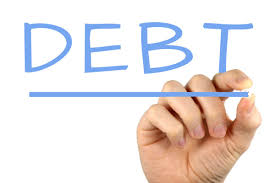Insolvency Lawyers In Auckland – Debts and Harassment
If you fall behind on your bills, it’s likely that a creditor will call you at some point. At times these phone calls may be cordial, but more often than not they are very unpleasant. While there are laws that guard people from being harassed by phone at work or at home, these regulations are not always taken into account by debt collectors. If this is happening to you, contact one of the insolvency lawyers in Auckland for advice.
 Some debt collectors, especially non-professional ones, can threaten people, sometimes they might even resort to violence. There are people who believe that their methods of causing physical or emotional pain to others is acceptable. This is worrying and is illegal. If this happens to you, contact on of the insolvency lawyers in Auckland for advice.
Some debt collectors, especially non-professional ones, can threaten people, sometimes they might even resort to violence. There are people who believe that their methods of causing physical or emotional pain to others is acceptable. This is worrying and is illegal. If this happens to you, contact on of the insolvency lawyers in Auckland for advice.
To avoid continued harassment from creditors, many consumers give in to their requests, believing that this will end the phone calls. However, this is not always the case. If one creditor contacts you, it’s likely that others will soon follow. When a person declares bankruptcy, they may still receive harassing phone calls from creditors before the declaration is processed. Creditors will eventually be notified, but it may take some time, during which the individual may still receive communication from them. If a creditor contacts you after you have filed for personal bankruptcy, you may be able to take legal action against them.
You must provide proof that you have paid your debts or filed for bankruptcy. It is essential that you keep all relevant documentation. Relevant documentation refers to the information associated with the payment or bankruptcy. It is also advised that people who are bankrupt maintain a record of the names, dates, and times of calls received from creditors after the creditors have been notified about the bankruptcy. If you are contacted by a creditor, it is important to get in touch with a lawyer who can then communicate with the creditor through the proper channels.
When researching the option of bankruptcy, there are various issues to take into account.
These can include the long-term effects on your credit, your job and your personal assets. You will also need to consider the type of bankruptcy that would be best for your particular situation. There are different levels of bankruptcy in New Zealand.
There are various types of insolvency, each resulting in different levels of debt. If someone has debts between $1000 and $47,000, the No Asset Procedure provides a different option to declaring bankruptcy.
 Bankruptcy may be an option to consider if you are looking to avoid paying current debt, but it is not recommended unless you have no other choice available. Creditor bankruptcy should be considered a last resort as it will be placed on your financial record and may be difficult to rebuild a positive credit score.
Bankruptcy may be an option to consider if you are looking to avoid paying current debt, but it is not recommended unless you have no other choice available. Creditor bankruptcy should be considered a last resort as it will be placed on your financial record and may be difficult to rebuild a positive credit score.
You should consult with an insolvency lawyer in Auckland to discuss the potential consequences of any decisions before you make them. They may also be able to assist you in negotiating payment terms with your creditors to avoid the ultimate bankruptcy option.
One of the good insolvency lawyesr in Auckland is McVeagh Fleming in the CBD.
Leave a Reply